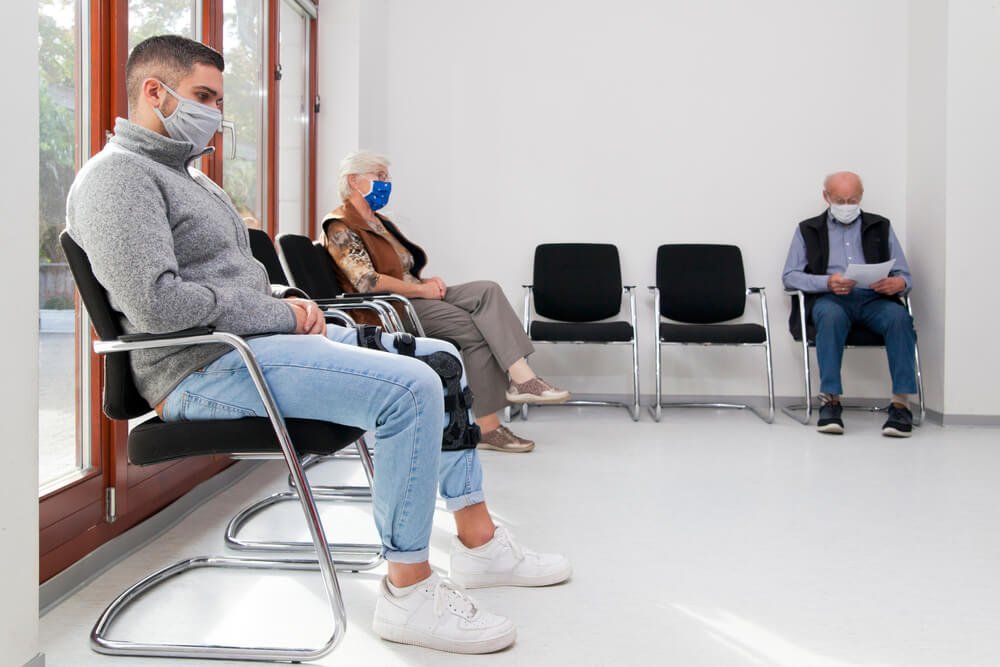NeuroStar® TMS Therapy
FDA-cleared, non-medication depression treatment
Existing Patients For Providers →
(855) 940-4867
You can feel them creeping back into your life: sadness, negative thoughts, sleepless nights, and other familiar depression symptoms. You're worried your antidepressants stopped working, even though you've been feeling better for a while. Now what?
Finding an effective antidepressant can be a challenge, so this situation can be frustrating and disheartening. But there could be more to the story—your old symptoms may be more noticeable again for many reasons, and not all of them are directly related to your medication. So if you think the effects of your antidepressants are wearing off, your next step is to gain a better understanding of your overall health. Here's what you need to know.
Before your doctor can make any changes to your treatment plan, be sure to do the following. First, keep taking your medication exactly as it was prescribed. Second, observe your symptoms for about a week to see how things develop. Describe what they were like when your medication was working and how things have changed recently.
Having more noticeable symptoms once in a while doesn't mean your medication is failing you. However, feeling worse for several days in a row could be meaningful. Consider how the following three factors can help you determine your next step.
Your doctor makes your depression diagnosis with the best information they have at the time. At some point, you may need to revisit your diagnosis and examine how other issues could be part of the picture.
Start by reviewing the original diagnosis. You may have bipolar depression instead of major depressive disorder, for example, or perhaps a new mental health issue is developing. You may also have a new or undiagnosed medical condition that's interfering with your ability to navigate your symptoms. Sometimes issues like thyroid disease or diabetes cause imbalances in your body that can affect your mood.
At the same time, if you've gone through a period of significant weight loss or have a medical condition affecting your digestive system, your body may not be able to absorb medication as well as it did previously. Inflammatory bowel disease, Crohn's disease, or gastric bypass surgery could have this effect on antidepressants.
Finally, simple aging can affect the way your body responds to medications. Changes to your blood-brain barrier, the density of your nerve cell receptors, and a slower response to medication can all make a difference. What worked for you at age 25 may not work the same way at 55 or 60.
Do the effects of antidepressants wear off? Your medication can become less effective for several reasons, even if it's helped for a while. Talk with your doctor about whether your medication is being absorbed into your body correctly. Again, absorption can be impacted by medical issues and the effects of aging, and another medication may work better for your body now.
Next, look closely at how you're using your medication. Has anything changed your ability to take it as prescribed, even just a few times? This could explain why its effectiveness has changed, and your doctor can help you find a regimen that fits with your current schedule.
Finally, check to see if your pharmacy switched to a generic version of your medication. Even when the active ingredient is the same, some variations in generic medications can change how they work in your body.
If you've recently gone through a life transition or a period of grief, your symptoms may be part of a normal but temporary reaction. You may feel better with more emotional support from others or lifestyle changes. A short-term adjustment to your treatment may be appropriate if you're not functioning well.
Depending on what you discover by exploring these factors, it may be time to change your depression treatment plan. Consider these possibilities to get your journey back on track.
Less than half of all adults using antidepressants find success on the first try. So, if you need to choose something different, it may take some trial and error. The good news is that you have many safe and effective choices to work with.
If your antidepressant relieves most of your symptoms, your doctor might add a second medication to fill in the gap. Called augmentation, this strategy can improve your symptoms without switching medications. While you may have more potential side effects to consider, a combination approach may give you the best relief.
Thanks for subscribing to our list!
Medication and counseling (also called therapy, or psychotherapy) can be an effective combination for depression symptom relief, often better than either treatment alone. If you're currently in therapy, talk to your therapist about improving your symptoms. You may consider a different approach or more frequent sessions. And if you're not in counseling right now, then this may be a good time to start.
Even after trying two antidepressants, one-third of people don't find relief from depression. If you find yourself in this situation, it may be wise to consider transcranial magnetic stimulation (TMS) therapy. FDA-cleared for treatment-resistant depression, TMS is a non-invasive treatment that could help you start feeling better within a few weeks. With TMS, a handheld device delivers magnetic pulses to specific areas of the brain that regulate emotion and mood. Treatment sessions are short and can be safely scheduled into your regular routine. In some cases, the combination of partially effective medications and TMS is enough to bring complete relief.
It's important to take the time to observe and understand how helpful your current antidepressant treatment is before making a change, but it's possible that TMS is an effective way to treat your symptoms. To learn more about whether TMS is right for you, schedule a no-cost consultation.
Take our short quiz to see if TMS therapy or nasal esketamine could be right for you
Subscribe for mental health, self-care, and TMS therapy and nasal esketamine updates for those affected by treatment-resistant depression or OCD.
Thank you for subscribing to our email list!
Oops, there was an error adding your subscription.
Please try again later.
By providing your email address, you are consenting to receive blog updates from Greenbrook TMS Inc. You may unsubscribe from these alerts at any time by following the “unsubscribe” link at the bottom of email alerts. At Greenbrook TMS Inc. we take the privacy and security of your personal information seriously. To learn more about how we protect your personal information, please refer to our Privacy Policy.


Greenbrook supports an accessible internet. If you have any questions about our accessibility features, please contact us at
(855) 940-4867 or info@greenbrooktms.com.
All Rights Reserved | Greenbrook TMS NeuroHealth Centers.